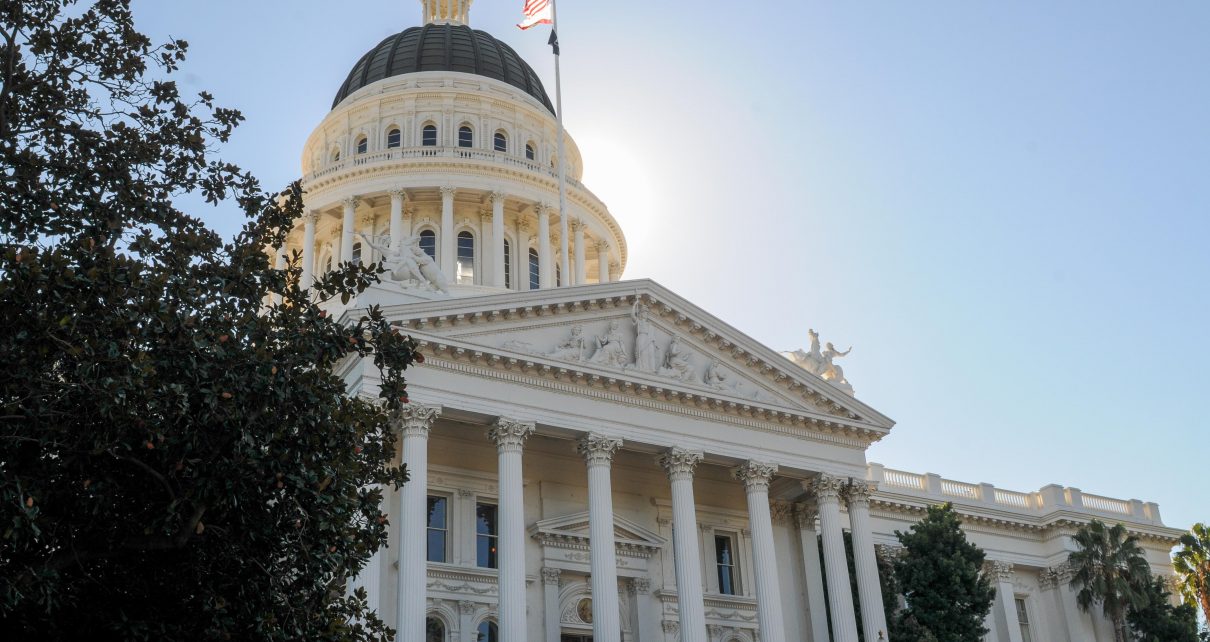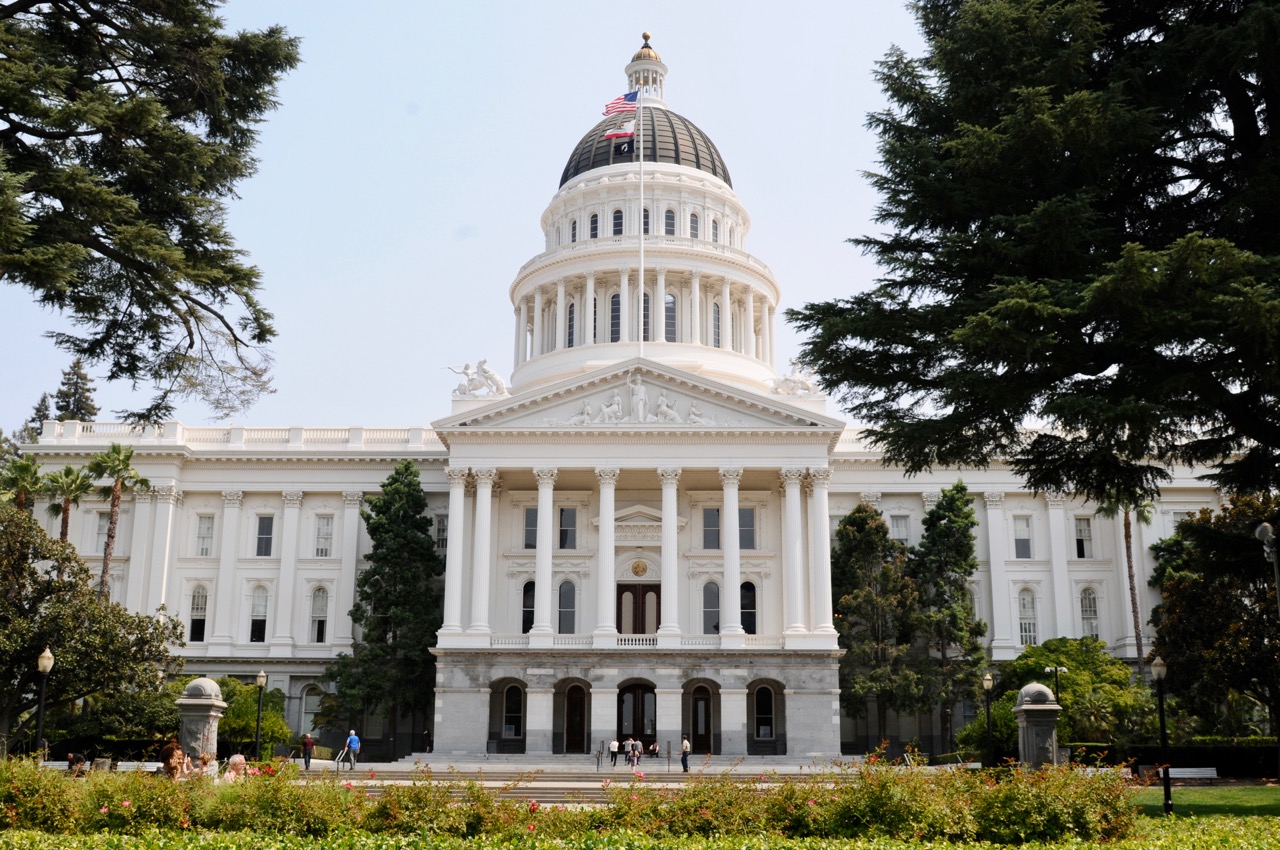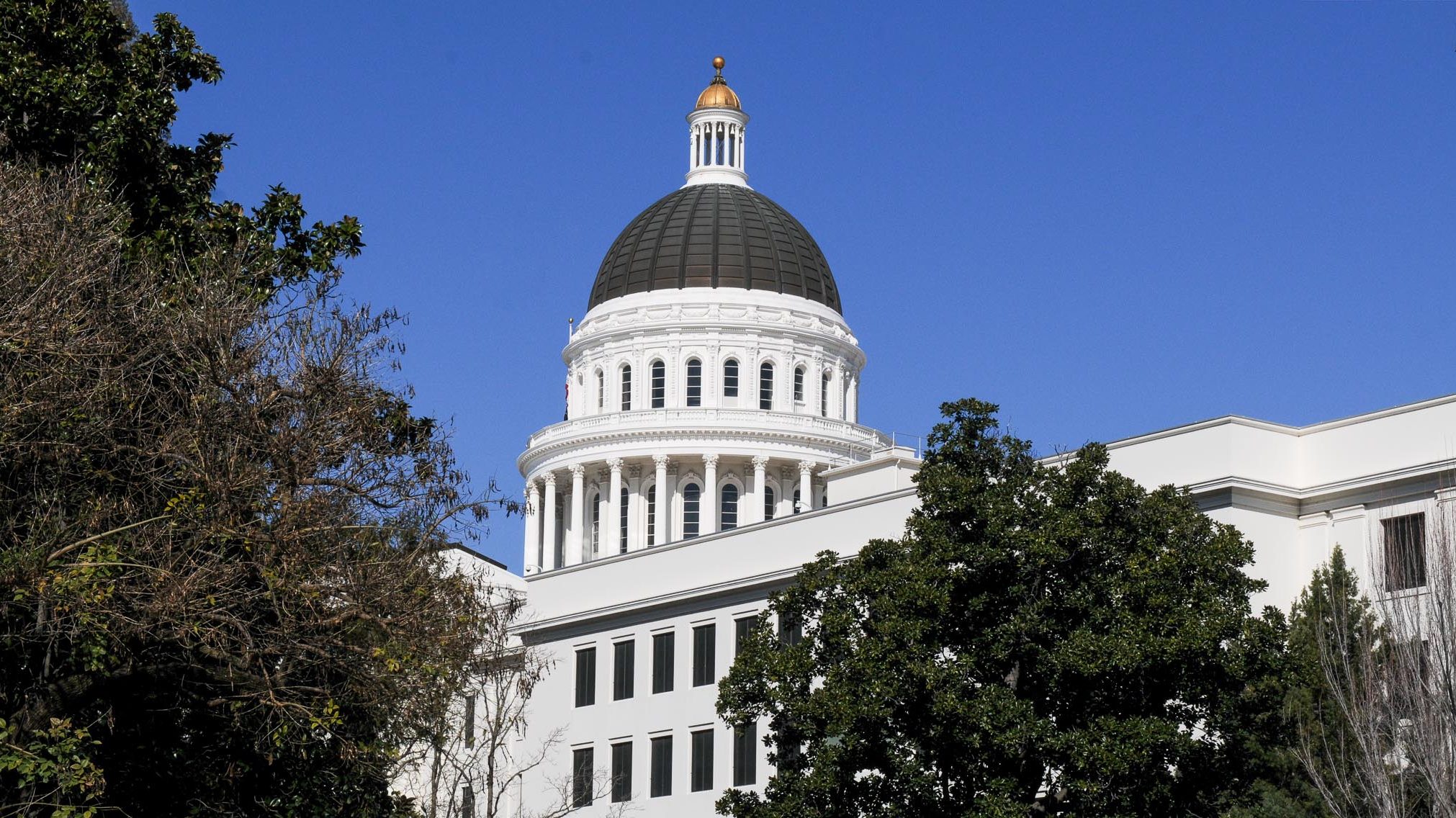
California State Capitol. (Photo: Kevin Sanders for California Globe)
Constitutional Rules for the California State Budget
No bill except the budget bill may contain more than one item of appropriation
By Chris Micheli, January 6, 2022 7:30 am
The annual state budget bill, as well as the “budget bill junior” and budget “trailer bills” are governed by provisions of the California Constitution. The budget bill junior and budget trailer bills are formally called “other bills providing for appropriations related to the budget bill.” The provisions of law related to the State Budget are primarily contained in Section 12 of Article IV of the state Constitution. What are these provisions?
First, within the first 10 days of each calendar year, the Governor is required to submit to the Legislature, with an explanatory message, a budget for the ensuing fiscal year containing itemized statements for recommended state expenditures and estimated state revenues. Although it can be introduced prior to or on January 10, this initial budget is referred to as the “Jan. 10 Budget.”
Second, the budget is required to be accompanied by a budget bill itemizing recommended expenditures. The Governor, through the Department of Finance, prepared the actual budget and line-item expenditures along with explanatory materials and often draft language for the Governor’s proposed trailer bills.
Third, the budget bill is required to be introduced immediately in each house by the persons chairing the committees that consider the budget. Regardless of whether they are of the same political party as the Governor or they agree with all or none of the budget proposal, the Chair of the Assembly Committee on Budget and the Chair of the Senate Committee on Budget and Fiscal Review introduce the Governor’s January 10 budget proposal. Thereafter, the Assembly and Senate may amend the Governor’s budget proposal as they deem appropriate.
Fourth, the Legislature is required to pass the budget bill by midnight on June 15 of each year. Only the budget bill itself must be passed. There is no requirement for the budget bill junior or any of the budget trailer bills to pass by June 15. Moreover, the Governor is not required to sign the budget by June 15. The only requirement is for the Legislature to pass it.
Fifth, until the budget bill has been enacted, the Legislature is prohibited from sending to the Governor for consideration any bill appropriating funds for expenditure during the fiscal year for which the budget bill is to be enacted, except emergency bills recommended by the Governor or appropriations for the salaries and expenses of the Legislature. The Governor will make a statement that he or she is recommending the bill as an emergency bill that should be considered prior to the enactment of the budget later in the session.
Sixth, no bill except the budget bill may contain more than one item of appropriation, and that for one certain, expressed purpose. The budget bill and the budget bill junior contain multiple items of appropriation. Budget trailer bill and other appropriations bills cannot contain more than one item of appropriations.
Seventh, appropriations from the General Fund, except appropriations for the public schools and appropriations in the budget bill and in other bills providing for appropriations related to the budget bill, are void unless passed in each house by rollcall vote entered in the journal, two-thirds of the membership concurring. As a general rule, all bills that appropriate monies from the State’s General Fund require a 2/3 vote in both houses of the Legislature in order to pass. There are two exceptions (i.e., only a majority vote is required) – the first is for public schools funding; the second is for the budget bill, budget bill junior, and budget trailer bills (if they contain an appropriate related to the budget bill).
Eighth, notwithstanding any other provision of law or of this Constitution, the budget bill and other bills providing for appropriations related to the budget bill may be passed in each house by rollcall vote entered in the journal, a majority of the membership concurring, to take effect immediately upon being signed by the Governor or upon a date specified in the legislation. This section specifies that the budget bill and all related bills require a majority vote of both houses for passage, and they can take effect immediately on the Governor’s signature.
For purposes of this section, “other bills providing for appropriations related to the budget bill” are required to consist only of bills identified as related to the budget in the budget bill passed by the Legislature. The budget bill enacted each year has a section toward the end of the bill that identifies by number all of the budget-related bills for that year.
Ninth, the Legislature may control the submission, approval, and enforcement of budgets and the filing of claims for all state agencies.
Tenth, the Legislature may not send to the Governor for consideration, nor may the Governor sign into law, a budget bill that would appropriate from the General Fund, for that fiscal year a total amount that, when combined with all appropriations from the General Fund for that fiscal year made as of the date of the budget bill’s passage, and the amount of any General Fund moneys transferred to the Budget Stabilization Account for that fiscal year pursuant to Section 20 of Article XVI, exceeds General Fund revenues for that fiscal year estimated as of the date of the budget bill’s passage. That estimate of General Fund revenues shall be set forth in the budget bill passed by the Legislature.
The Legislature is prohibited from sending the Governor, and the Governor is prohibited from signing into law, a budget bill that is not balanced on paper. In addition, the estimate of revenues anticipated being received in the General Fund must be contained in the budget bill that is passed by the Legislature.
Eleventh, notwithstanding any other provision of law or of this Constitution, in any year in which the budget bill is not passed by the Legislature by midnight on June 15, there cannot be no appropriation from the current budget or future budget to pay any salary or reimbursement for travel or living expenses for Members of the Legislature during any regular or special session for the period from midnight on June 15 until the day that the budget bill is presented to the Governor. No salary or reimbursement for travel or living expenses forfeited pursuant to this subdivision shall be paid retroactively. Legislators are prohibited from receiving either their salary or their per diem payments for any days past June 15 that the budget bill has not been passed. And, even after they pass the budget bill after June 15, they cannot be retroactively paid.
- Attorneys-in-Fact in Probate - February 25, 2026
- Pacific Marine Fisheries Compact - February 24, 2026
- Relations of LLC Members and Managers - February 24, 2026




